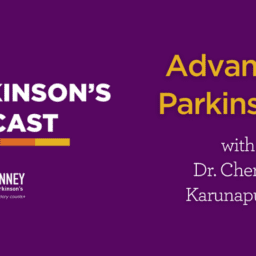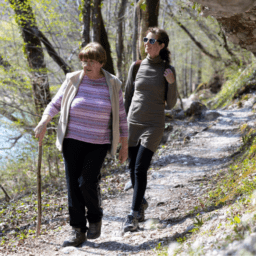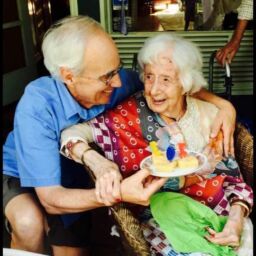In this Live Well Today webinar, Davis Phinney Foundation Executive Director Polly Dawkins talks with Dr. Cherian Karunapuzha (Dr. K.) about advanced Parkinson’s.
You can view the entire webinar series archive here.
To download a copy of the transcript, click here.
To download an audio version of this webinar, click here.
Notes From the Webinar
Advanced Parkinson’s is difficult to define, and there is no consensus as to what the term means. Dr. K. explains that advanced Parkinson’s is a “controversial term.”
The fundamental complication is that each person with Parkinson’s has a distinct experience. This variability makes it hard to singularly define advanced Parkinson’s.
Dr. K.’s Four Markers for Advanced Parkinson’s
Despite the lack of clear definition of advanced Parkinson’s, Dr. K. offers four markers to help identify advanced Parkinson’s:
- Troublsome motor fluctuations
- Disruptive autonomic symptoms
- Length of time you have lived with Parkinson’s. People who have lived with Parkinson’s for more than 10 years are often said to live with advanced Parkinson’s because after this duration symptoms and medication management tend to become more complex.
- Dementia and/or psychosis
Dementia and Psychosis: Critical Problems
Most people with Parkinson’s experience some kind of cognitive impairment: slowed thinking, difficulty finding the right word, and other minor cognitive changes. Parkinson’s dementia is different. It’s marked by periods of daytime confusion and disorientation. Parkinson’s psychosis is marked by hallucinations and delusions.
Dementia and psychosis tend to occur 10-15 years after a Parkinson’s diagnosis, but Dr. K. notes that people with young onset Parkinson’s generally experience these indicators of advanced Parkinson’s after a longer period. Dr. K. also says there is a tendency for earlier onset of Parkinson’s dementia for people who are older at time of diagnosis and who experience prominent bradykinesia, rigidity, and balance problems.
Treatments for Advanced Parkinson’s
The most common treatment options for advanced Parkinson’s are:
- Additional medications to supplement a standard levodopa or dopamine agonist regimen for particular symptoms or motor fluctuations
- Surgical treatments like DBS and Duopa
- Botulinum injections to treat rigidity and other symptoms
- Physical therapy, occupational therapy, and speech therapy to avoid falls and retrain gait patterns, strengthen mouth and throat muscles to avoid aspiration, and to help prevent complications from hallucinations
An important but less recognized aspect of treatment for advanced Parkinson’s is to have an active social life, which can help assuage anxiety and depression.
There are many treatments for advanced Parkinson’s, and each person’s needs are different. Consult your care team about the best options for your treatment plan. Because of the intricacies of advanced Parkinson’s therapies, it is ideal if you establish a relationship with a movement disorder specialist or neurologist with experience treating Parkinson’s before you experience symptoms of advanced Parkinson’s.
Other Tips from Dr. K.
- Find a community to be active with—group exercise classes can be a great resource.
- Start with small doses of exercise; even just standing up and sitting down 10 times every hour on the hour can be enough.
- Loudly sing along with your favorite songs: This can help you strengthen muscles involved in speech and swallowing.
- Be careful about using walkers and canes; see a therapist for instruction and to confirm you are using an appropriate device
- When living with advanced Parkinson’s, have an evaluation with a physical, occupational, and speech therapist once a year to help avoid increased mortality risk due to falls and aspiration.
Dr. K’s Core Advice: Live Well Today
Many people—especially those newly diagnosed—have concern about the future and what might happen during the advanced stages of Parkinson’s.
Although anyone who lives long enough with Parkinson’s will experience symptoms of advanced Parkinson’s, many people pass away from non-Parkinson’s related health issues before they reach an advanced stage. Because of this, Dr. K. advises you not spend too much time worrying about the longer-term future of life; instead, focus having a strong care team and living your best life today, no matter what stage of Parkinson’s you are navigating.
Additional Resources
Advanced Parkinson’s Blog Post
Parkinson’s 101: A Video for the Newly Diagnosed
Parkinson’s Dementia Resources and Information
YOPD Council: Dementia and Young Onset Parkinson’s
Five Things to Know about Long Term Care Planning
Sleepiness and Fatigue in Parkinson’s
Medication, Protein, and Parkinson’s
WANT MORE PRACTICAL ARTICLES LIKE THIS?
You can learn much more about living well with Parkinson’s today through our Every Victory Counts® suite of resources. Each manual is packed with up-to-date information about everything Parkinson’s. Click the link below to reserve your manual(s).
Thank you to our 2023 Peak Partners, Amneal, Kyowa Kirin, and our Every Victory Counts Gold Sponsor, AbbVie Grants, for their ongoing support of these must-have manuals. Additionally, we’d like to thank Barbara and Dale Ankenman, Abby and Ken Dawkins, Bonnie Gibbons, Gail Gitin in loving memory of Gene Gitin, Irwin Narter, and Lorraine and J Wilson for their generous donations that allow us to make these resources available and free to all.
















